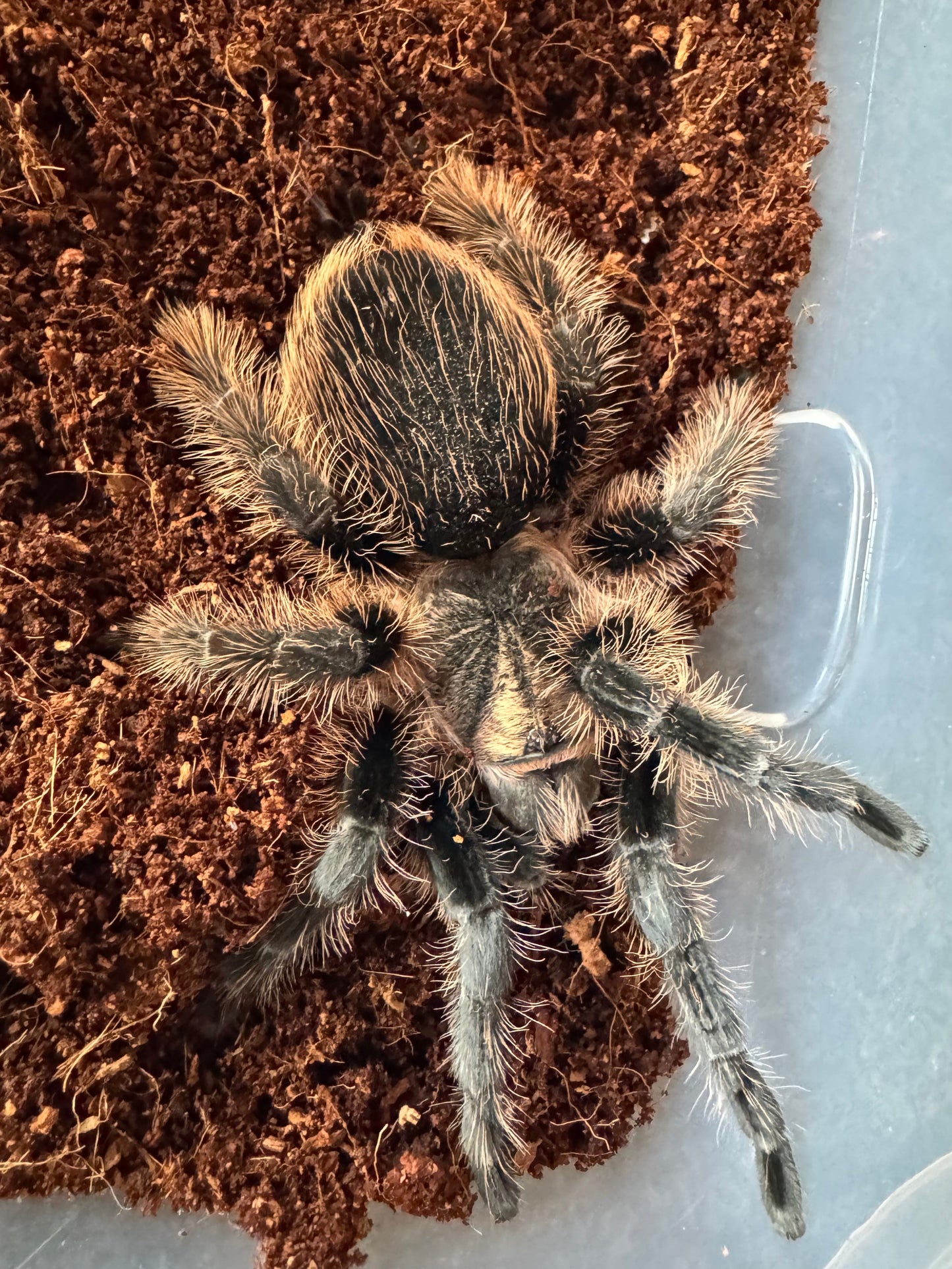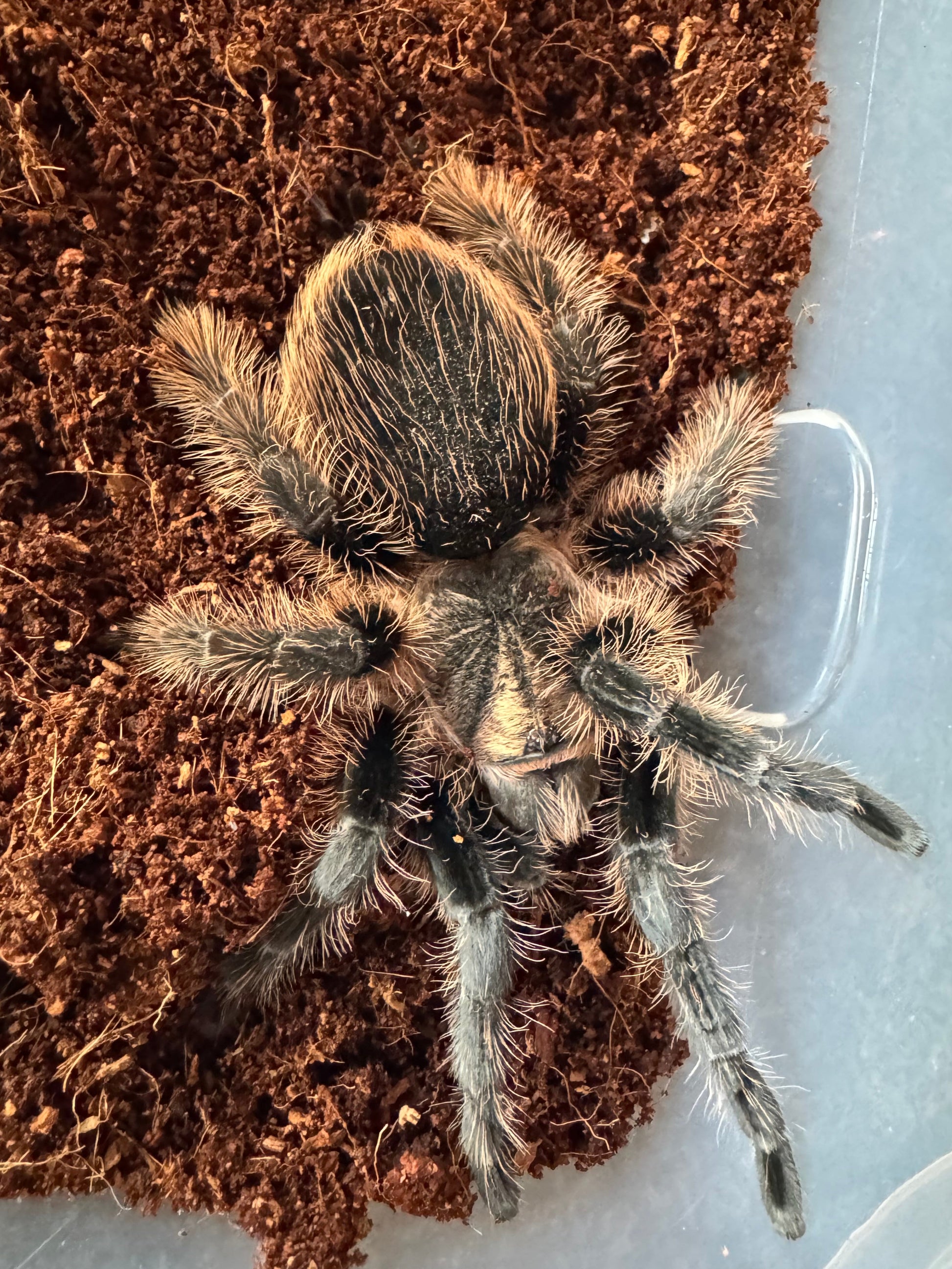Tarantuladen.co.za
Curly Hair Tarantula (Tliltocatl Albopilosus)
Curly Hair Tarantula (Tliltocatl Albopilosus)
Low stock: 2 left
Couldn't load pickup availability
Gentle, shaggy, and surprisingly charismatic, Tliltocatl albopilosus is a New World terrestrial favorite. With its distinctive curled hairs and easygoing attitude, this species is perfect for beginners — or anyone who appreciates a low-maintenance, fuzzy beauty.
Quick Facts
Common Name: Curly Hair Tarantula
Scientific Name: Tliltocatl albopilosus
Origin: Honduras, Nicaragua, Costa Rica
Size: 5–6 inches (12–15 cm) leg span
Lifespan:
- Females: 15–20 years
- Males: 5–6 years
Temperament: Calm, docile, slow-moving (generally)
Coloration
Rich dark brown or bronze body
Covered with long, curled golden, tan, or white hairs
Gives a “fluffy” and almost teddy bear-like appearance
Some captive-bred morphs (like the "Nicaraguan Curly") are lighter or brighter
Housing & Care
Enclosure Type: Terrestrial — lots of floor space
Substrate: 4–5 inches of slightly moist substrate (coco fiber/topsoil mix)
Humidity: 65–75% — moist bottom layer, dry top is ideal
Temperature: 70–78°F (21–26°C)
Decor:
- Hide (like a cork bark half-log)
- Water dish and optional light foliage or moss
- Appreciates a cozy, earthy setup
Curly Hairs like to bulldoze and dig a bit, especially when young.
Feeding
Diet: Crickets, roaches, mealworms
Feeding Schedule:
- Slings: 2–3x/week
- Juveniles: Weekly
- Adults: Every 10–14 days
Steady, reliable feeders — not aggressive but definitely not shy about food
Why It's So Popular
Extremely hardy and forgiving of minor care mistakes
Very docile — among the few species sometimes considered for gentle handling
Slow and deliberate movements make it easy to work around
Adorable, fluffy appearance — crowd favorite for a reason
Great educational species for beginners and kids (with supervision)
Notes
Will kick hairs if stressed — though not nearly as bad as some other species
Needs good cross-ventilation to prevent excess humidity buildup
May fast for periods, especially near pre-molt
Some individuals are a bit skittish when young but usually mellow out with age
Share

Let customers speak for us
from 5 reviewsLove my new little baby! Thank you 😊

Great service and speedy delivery

It was way beter than I expected. Quick responses to questions. The slings were package so well and it was the most pleasant surprise to see the slings picked out for me. Species I would not order myself because I'm careful of old worlds. I am very satisfied and would recommend tarantula den to anyone looking to purchase tarantulas online.



